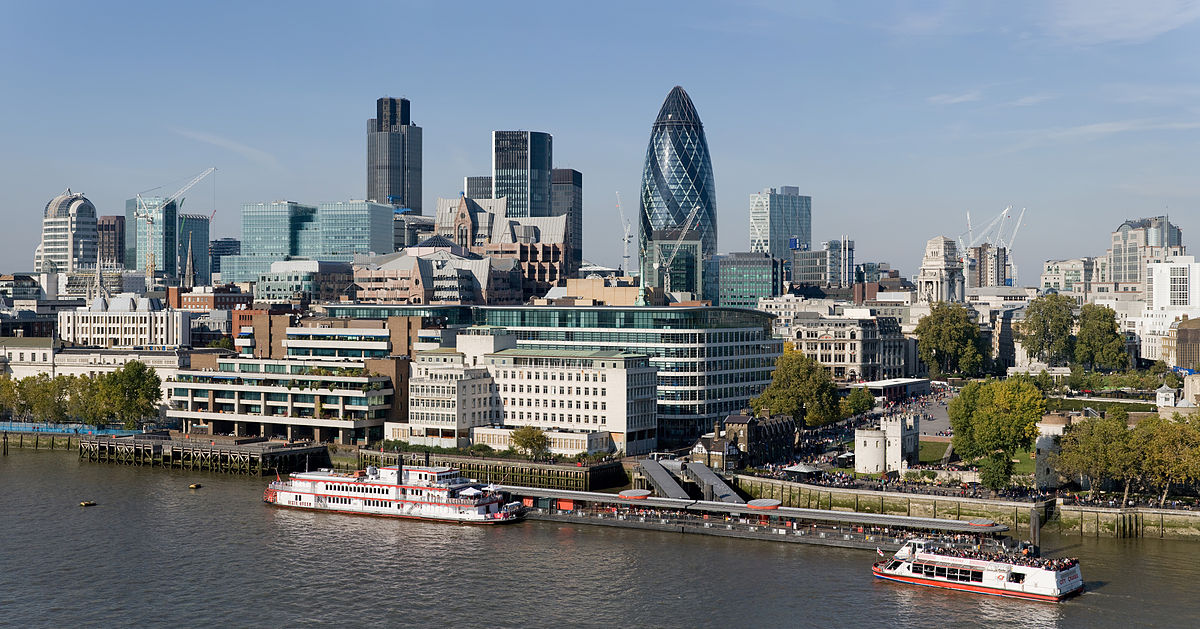Urbanisation, industrial development and sustainability
In 1800 only 3% of the world’s population lived in cities. By 1960 this had increased to 34% and by 2014 this had increased to 54% (WHO 2016). Modern urban population growth is concentrated in the developing world and by 2017 the majority of people in the developing world will be located in urban areas.

'The City of London skyline' by Diliff, from Wikimedia. Used under a creative commons license.
Cities are the centres of industrial production globally and are one of the main driving forces for economic development (Oberheitmann and Xiaodong 2013). Cities are the service centres which drive and support the modern consumption society and its associated economic transactions. Although there is some debate as to whether urbanisation is caused by economic growth or economic growth causes urbanisation, there is undoubtedly a close link between both processes. There are no developed countries that are not substantially urbanised (Henderson 2012) and it is argued that industrialisation requires urbanisation. Emerging industry and economic development has traditionally required the concentrated workforce able to be supplied by urban areas, and manufacturing industries and service industries benefit from the agglomeration economies available in densely populated urban regions (ibid).
As distinct entities cities are net consumers of natural capital and the continuing growth in the size and number of big cities is posing major challenges for sustainable use of the world’s natural resources. Unbridled urban growth threatens to overwhelm the planet’s capacity to support human life.
(Mulligan 2015:233)
Modern cities have long since failed to be able to have the capacity to produce their own food and water supplies. In this sense they cannot be considered to be sustainable. On the other hand, as centres of technological and cultural innovation, with direct communications with global markets, and access to often world-leading research and education, modern cities have a continuing and central role in human development across the globe. Balancing this role with the principles of sustainability has come increasingly to the fore in recent decades in the EU, firstly with the European Sustainable Cities and Towns Campaign (1994) and more recently with the related launch of the European Sustainable Cities Platform (2013).